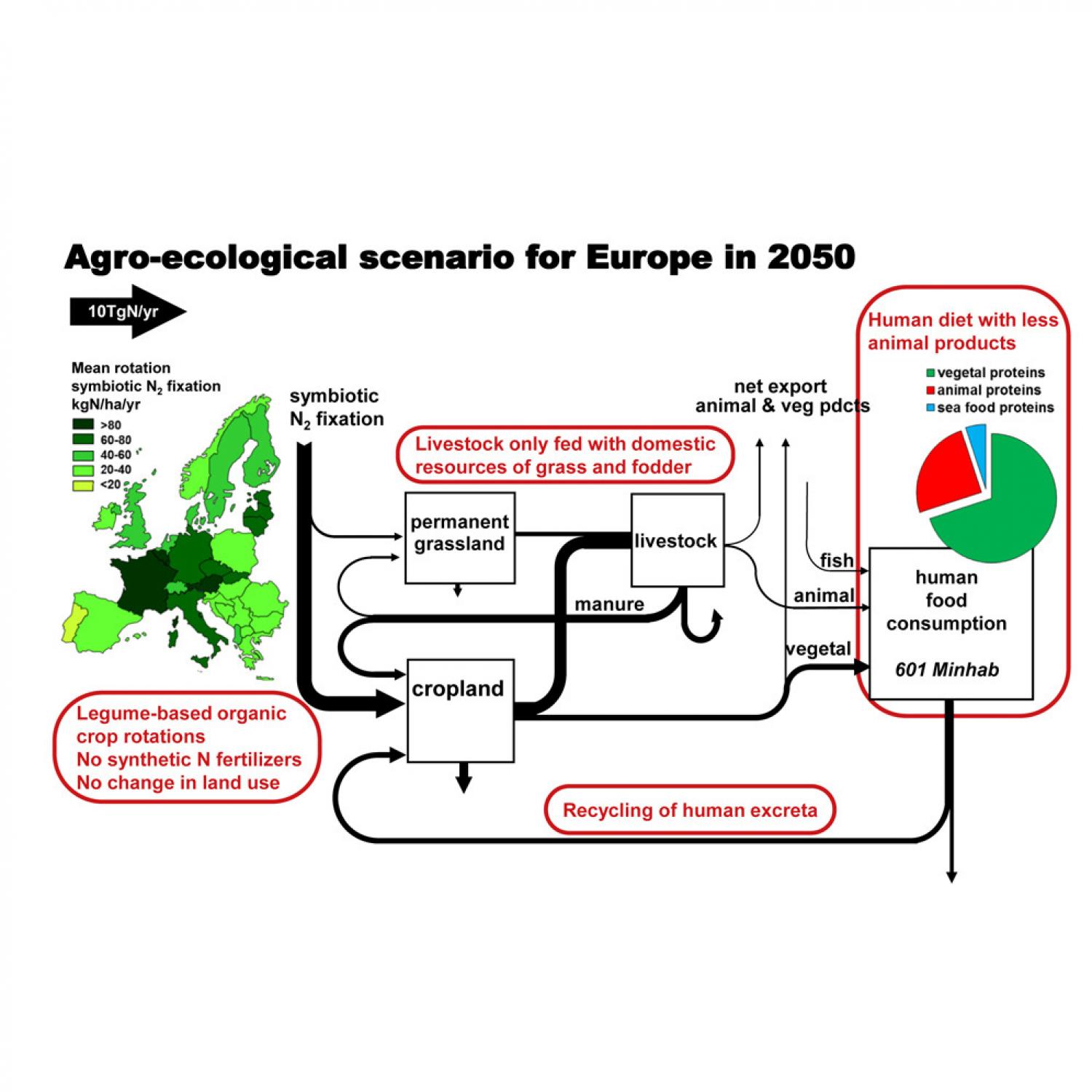
Elsevier, One Earth, Volume 4, 18 June 2021
After World War II, the evolution of Europe's agro-food system has been marked by intensified use of synthetic fertilizers, territorial specialization, and integration in global food and feed markets. This evolution led to increased nitrogen (N) losses to aquatic environments and the atmosphere, which, despite increasing environmental regulations, continues to harm ecosystems and human well-being. Here, we explore how these N losses can be drastically reduced in a scenario synergistically operating three levers: (1) a dietary change toward less animal products and an efficient recycling of human excreta; (2) the generalization of region-specific organic crop rotation systems involving N2-fixing legumes, making it possible to do without synthetic N fertilizers; and (3) the reconnection of livestock with cropping systems allowing optimal use of manure. This scenario demonstrates the possibility to feed the projected European population in 2050 without imports of feed and with half the current level of environmental N losses.
